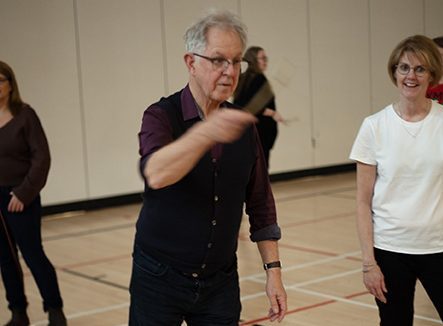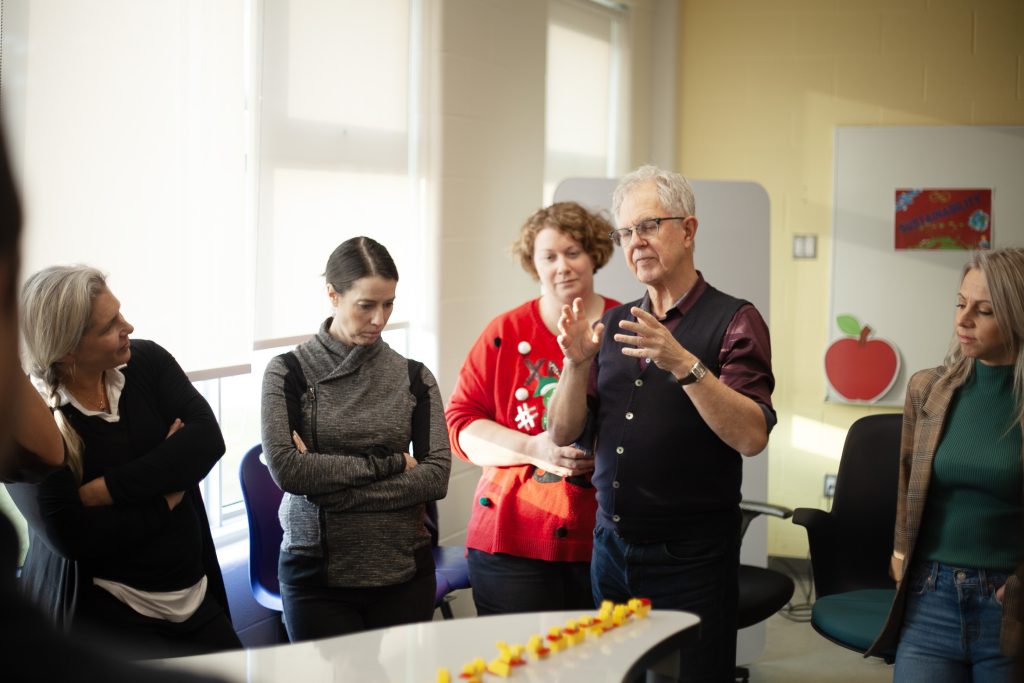
As adults, most of us know that learning can happen at any place, at any time. And childhood educators take advantage of this idea to teach students via activities commonly considered play.
So it made perfect sense that Hanwell Park Academy, ASD-W’s newest school, would host the Canadian Playful Schools Network’s (CPSN) Atlantic Gathering in Education last Friday. The CPSN’s stated aim is to “connect and support schools and educators across Canada that have designed innovative programs and activities to encourage student learning through play in the middle years.”
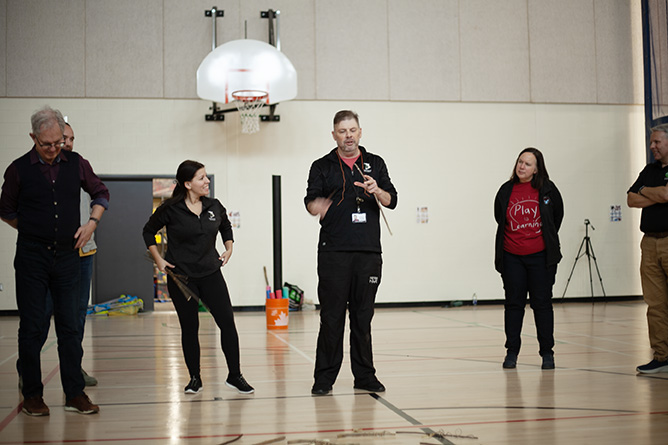
Hanwell Park Academy, a K-8 school in its second school year of operation, features open areas, shops and labs where students can take part in such fun educational activities as woodworking, sewing, design via 3D printing, cooking and more. Educators from throughout Atlantic Canada came to the location to learn about these innovative educational play concepts—called EPICs (Engagement through Play, Innovation, and Creativity)— from CPSN principal investigators Andy Hargreaves and Trista Hollweck. They also came to share ideas with each other.
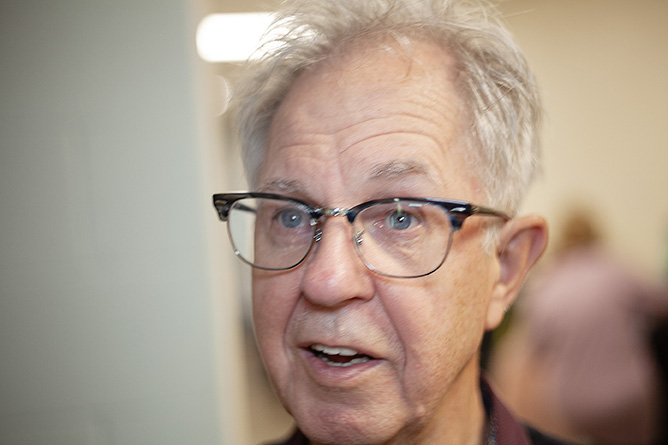
“I think in hosting all the Atlantic provinces [at Hanwell] other provinces were able to see some of the great work that’s going on in Hanwell and with the other New Brunswick schools,” said Hargreaves, a visiting professor at the University of Ottawa.
Of the four anglophone schools participating in the CPSN initiative, three are in ASD-W: Hanwell Park Academy, Gagetown School, and Bath Community School. And while any school can take advantage of learning play ideas, belonging to the CPSN initiative allows schools to access funding for projects. It also allows teachers at member schools to network with other schools throughout the province, region, and country to share ideas.
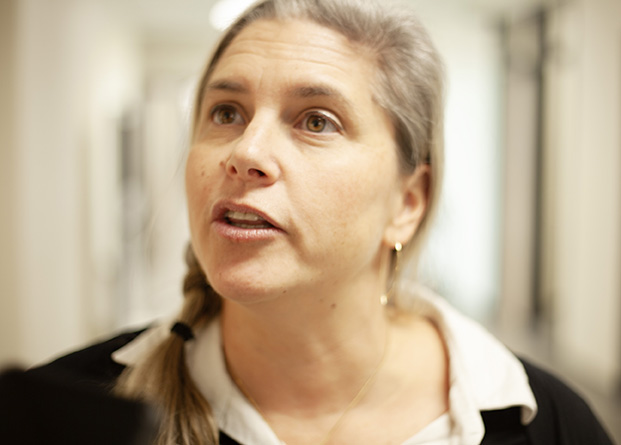
“Learning through play can enhance a community, and that’s what makes it really exciting,” said Hollweck, a University of Ottawa research fellow. “We’re seeing so many ways that different schools took on the idea of play.”
Hollweck classified the types of educational play as green play, screen play, machine play, and everything-in-between play, types of learning play exemplified every day in district schools. Among the ASD-W teachers in attendance, green-play activities were popular at their respective schools.

Keswick Ridge Memorial School Acting Principal Jeff Taylor came to the conference to get “some ideas around purposeful play and how it can not only impact the students but staff, and get them really re-energized and motivated into doing something a little bit different while still having the curricular outcomes we need.”
Some of the “purposeful play” activities at Keswick Ridge Memorial School include chess, gardening, maker space, outdoor shelter building, and fishing, Taylor said.
“We do multi-age groupings,” said Taylor, “so from grades 4 to 8 they’re intermixed, and students get choice in what they select and teachers get choice in what they offer—something that they’re passionate about.”
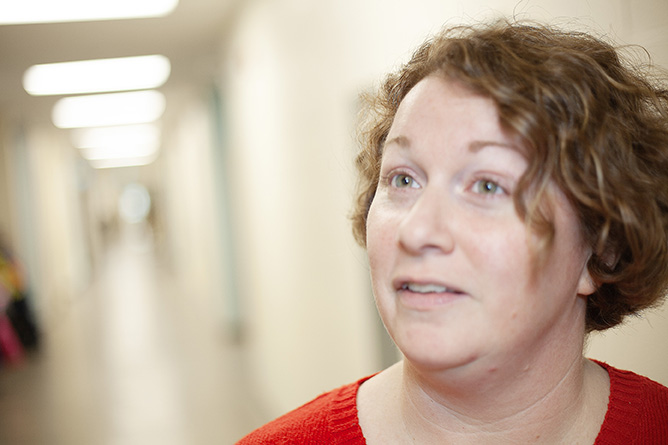
Echoing Taylor’s sentiments, Gagetown School Acting Principal Rebecca Piercy also came to the conference for ideas on educational play.
“I’ve got so many great ideas that I want to take back to the staff right now,” said Piercy.
One of those ideas is let students drive the decision-making process on activities.
“I think we’re going to leave it up to the kids and have conversations with them about what things would be interesting for them and that they feel they have capacity to offer leadership with,” she said. “We have a garden that they started last year… so we’ve got the space and we’ve got some of the ideas. We’re going to pick it back up in the springtime.”
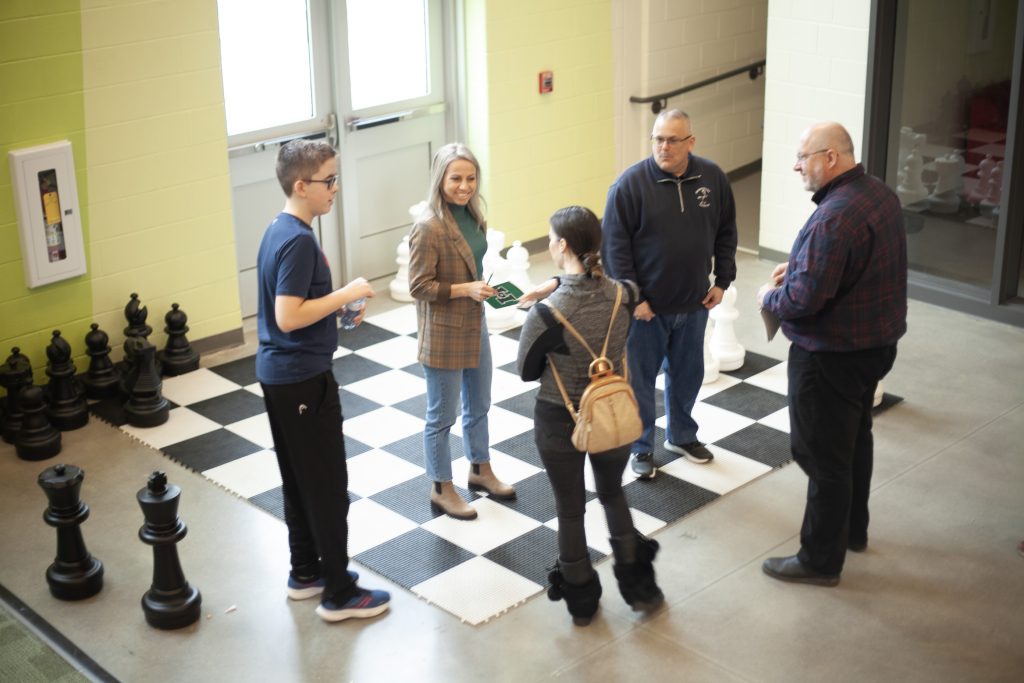
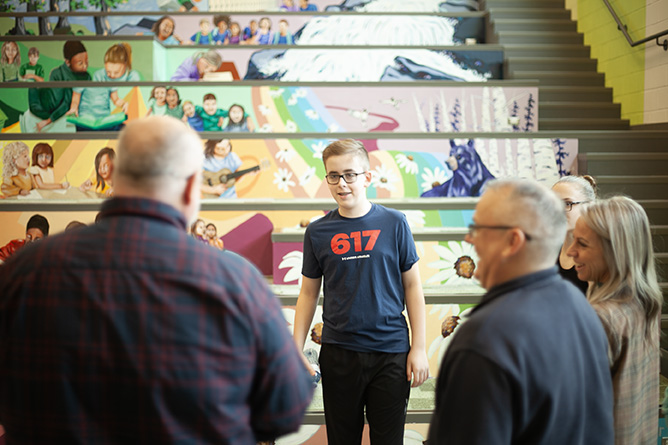
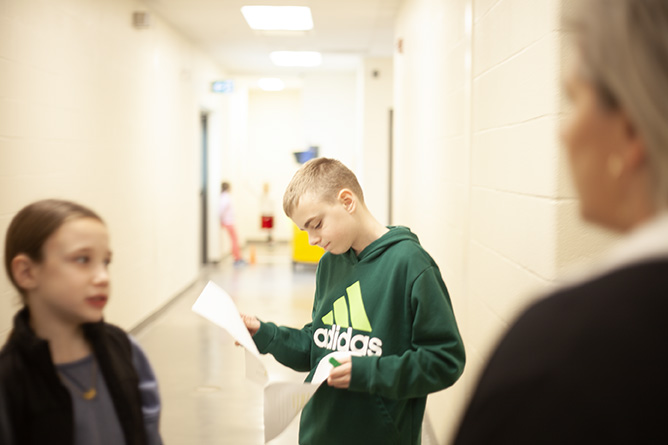
The conference promoted student decision-making with student-led guided tours of the school’s classrooms and activity spaces.
Educators finished up the conference taking part in educational games of Indigenous origin, led by Sarah Francis, ASD-W Director of First Nations Culture & Programs, and Health and Physical Education Coordinator Ross Campbell.
“When it comes to play, I think it’s enhancing learning for students, but it’s also enhancing learning for teachers,” Hollweck said.

